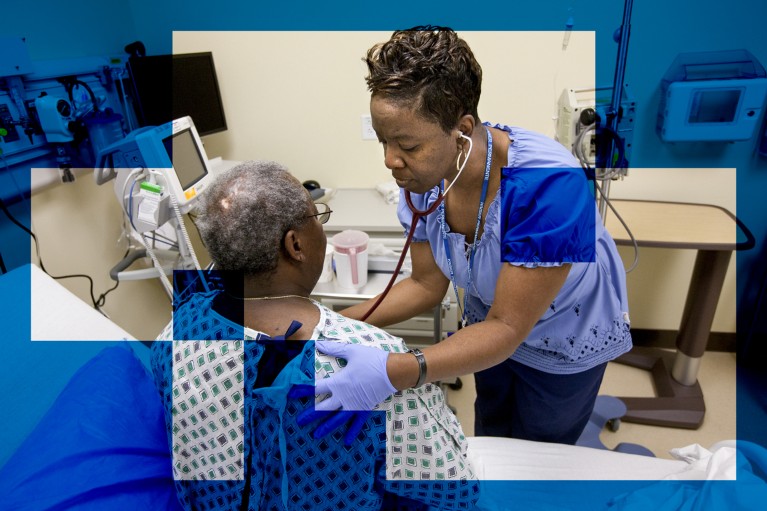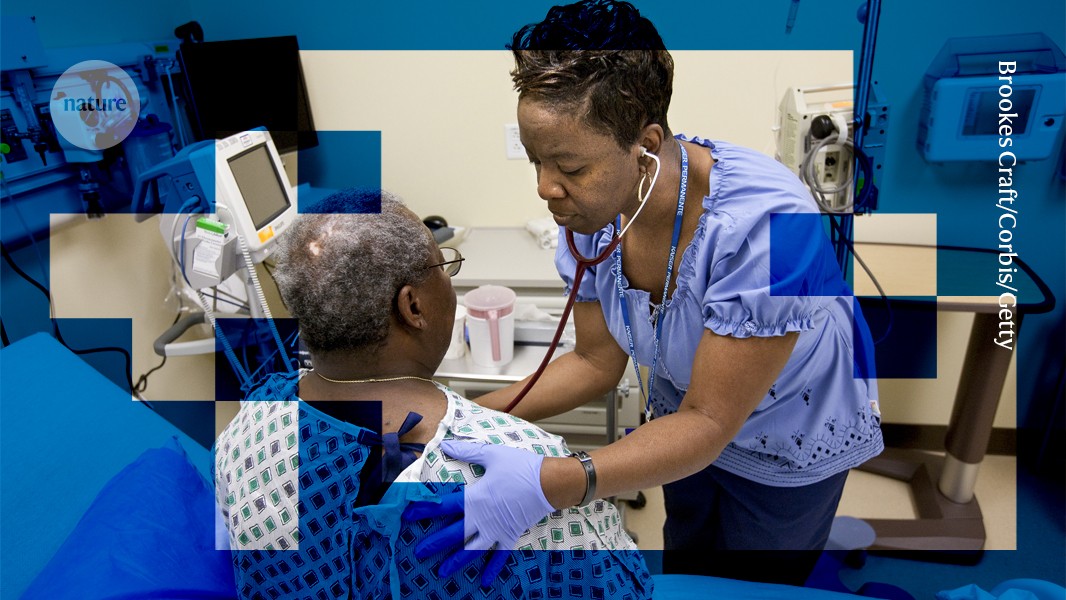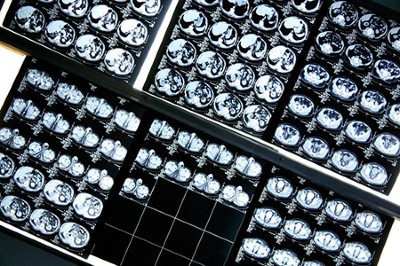
An artificial-intelligence system trained on data from 400,000 people in the United Kingdom can estimate the likelihood that a person will develop cancer and a host of other diseases over the course of 20 years.Credit: Brooks Kraft/Corbis/Getty
A new artificial intelligence (AI) tool can forecast a person’s risk of developing more than 1,000 diseases, in some cases providing a prediction decades in advance1.
The model, called Delphi-2M, uses health records and lifestyle factors to estimate the likelihood that a person will develop diseases such as cancer, skin diseases and immune conditions up to 20 years ahead of time. Although Delphi-2M was trained only on one data set from the United Kingdom, its multi-disease modelling could one day help clinicians to identify high-risk people, allowing for the early roll-out of preventive measures. The model is described in a study published today in Nature.
The tool’s ability to model multiple diseases in one go is “astonishing”, says Stefan Feuerriegel, a computer scientist at the Ludwig Maximilian University of Munich in Germany, who has developed AI models for medical applications. “It can generate entire future health trajectories,” he says.
Oracle of health
Researchers have already developed AI-based tools to predict a person’s risk of developing certain conditions, including some cancers and cardiovascular disease. But most of these tools estimate the risk of only one disease, says study co-author Moritz Gerstung, a data scientist at the German Cancer Research Center in Heidelberg. “A health-care professional would have to run dozens of them to deliver a comprehensive answer,” he says.
To address this, Gerstung and his colleagues modified a type of large language model (LLM) called a generative pre-trained transformer (GPT), that forms the underpinning of AI chatbots such as ChatGPT. When asked a question, GPTs provide outputs that, according to their training on vast volumes of data, are statistically probable.
An AI revolution is brewing in medicine. What will it look like?
The authors designed their modified LLM to forecast a person’s likelihood of developing 1,258 diseases on the basis of their past medical history. The model also incorporates the person’s age, sex, body mass index and health-related habits, such as tobacco use and alcohol consumption. The researchers trained Delphi-2M on data from 400,000 participants of the UK Biobank, a long-term biomedical monitoring study.
For most diseases, Delphi-2M’s predictions matched or exceeded the accuracy of those of current models that estimate the risk of developing a single illness. The tool also performed better than a machine-learning algorithm that uses biomarkers — levels of specific molecules or compounds in the body — to predict the risk of several diseases. “It worked astonishingly well,” says Gerstung.



